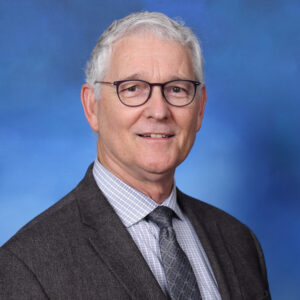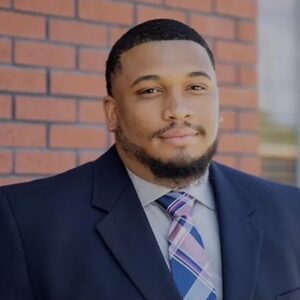Writer: Jerrica DuBois
 4 min read August 2023 — It’s back to school time, and the education options in the K-12 space are abundant. Tailoring children’s educational experience has become a priority for many parents — choosing between public, private, home school, charter and religious affiliated schooling.
4 min read August 2023 — It’s back to school time, and the education options in the K-12 space are abundant. Tailoring children’s educational experience has become a priority for many parents — choosing between public, private, home school, charter and religious affiliated schooling.
While legislation on school vouchers is still wavering in Texas, parents are increasingly exercising their power of choice. According to a report released by the Thomas B. Fordham Institute, classical charter schools are becoming a more popular option for Texans. Enrollment in classical charter schools from the 2019-2020 school year to the 2020-2021 school year increased by a staggering 21%. Texas has also fared better in public school enrollment in comparison to national statistics. A report issued by the Texas Education Agency showed that between 2010 and 2020, public school enrollment in the state increased by 8.9%, while the U.S. showed a decline of 0.2%.
As schools prepare to open their doors, Invest: caught up with leaders in the sector on their preparations for this school year and the current state of education.
How are you preparing for the next school year?
Paul Wolfe, Head of School, The Cambridge School of Dallas: We are seeing a lot of variability in student preparedness since the pandemic. While we accept students in grades 5-8, our upper school program is larger than our middle school, and the 9th grade is our primary entry point. As we grow in our new facility, we are constantly evaluating how to best ensure the success of new students because Cambridge is an all honors/advanced program. We are always looking at how we nurture community, especially with a new campus; we don’t want to lose our sense of mission.
 Dionel Waters, Area Superintendent, IDEA Public Schools: I’m excited because I was able to get a grant for $500,000 from the Rainwater Foundation, and of that $500,000, I’m using $250,000 toward staff retention. I’m using another $250,000 to invest in mental health for our students. We have a lot of situations where kids are hurting themselves or making threats to hurt others. So, we’ll take in half of that money to invest in professional counselors that can do virtual and in-person counseling for the students and staff at no charge. We want to be able to support our children. I’m looking forward to the upcoming year.
Dionel Waters, Area Superintendent, IDEA Public Schools: I’m excited because I was able to get a grant for $500,000 from the Rainwater Foundation, and of that $500,000, I’m using $250,000 toward staff retention. I’m using another $250,000 to invest in mental health for our students. We have a lot of situations where kids are hurting themselves or making threats to hurt others. So, we’ll take in half of that money to invest in professional counselors that can do virtual and in-person counseling for the students and staff at no charge. We want to be able to support our children. I’m looking forward to the upcoming year.
 Jeffrey Johnson, President & CEO, Coram Deo Academy: We always seem to be thinking about planning and are working on our next strategic plan this summer. Additionally, we’re looking at master planning on our campuses to make sure that we’re utilizing the resources that we have most effectively, as well as how to make sure that we have the resources necessary to produce an excellent product. We are continuing to think about our team and ensuring we have the best educators in place. This has been an interesting market because there are a lot of people coming into the community, which is great. There are also a lot of people who need great educators. So, it’s a competitive employment market and there are a number of other alternatives that parents must make decisions about as well.
Jeffrey Johnson, President & CEO, Coram Deo Academy: We always seem to be thinking about planning and are working on our next strategic plan this summer. Additionally, we’re looking at master planning on our campuses to make sure that we’re utilizing the resources that we have most effectively, as well as how to make sure that we have the resources necessary to produce an excellent product. We are continuing to think about our team and ensuring we have the best educators in place. This has been an interesting market because there are a lot of people coming into the community, which is great. There are also a lot of people who need great educators. So, it’s a competitive employment market and there are a number of other alternatives that parents must make decisions about as well.
What is the current state of the education sector in North Texas?
Wolfe: Currently, North Texas has some of the number one public and number one private schools in the nation. There is a great diversity in types of school here, both in the public sector and private sector, with many faith-based and secular, non-parochial schools. No matter what you are looking for in Dallas-Fort Worth, you have great options here. The Cambridge School of Dallas is a Christ-centered, classical college preparatory school, and we fill a unique place within that sector. So, I would compare North Texas’ secondary education favorably to any city or other major metropolitan area in the country.
Waters: When we look at education now, there are a lot of opportunities where school districts can help prepare students for, not just the workforce, but life in general. We have to align what we’re teaching and presenting to our students with what is currently happening in the world. This relates to educating about artificial intelligence, technology, engineering, looking at climate change and looking at the global energy relationship between countries.
These are the things that education can do a much better job of preparing students for and allowing these students to become critical thinkers and international contributors to society.
Johnson: From my perspective, it’s been very strong. Of course, the population growth brings in new students and families. Our niche family has a real interest in what we’re doing in collaborative, classical and Christian private education. We must control or contain our growth so that we can make sure that we do an excellent job in each distinctive. That is encouraging because people want our product and are interested in what we’re doing. They want to be a part of what we’re doing. There’s a lot of that right now in the private school area. There are several new schools being started. We’re growing and have felt like we could start other campuses if we chose to do that.
For more information, please visit:
https://www.cambridgedallas.org/

